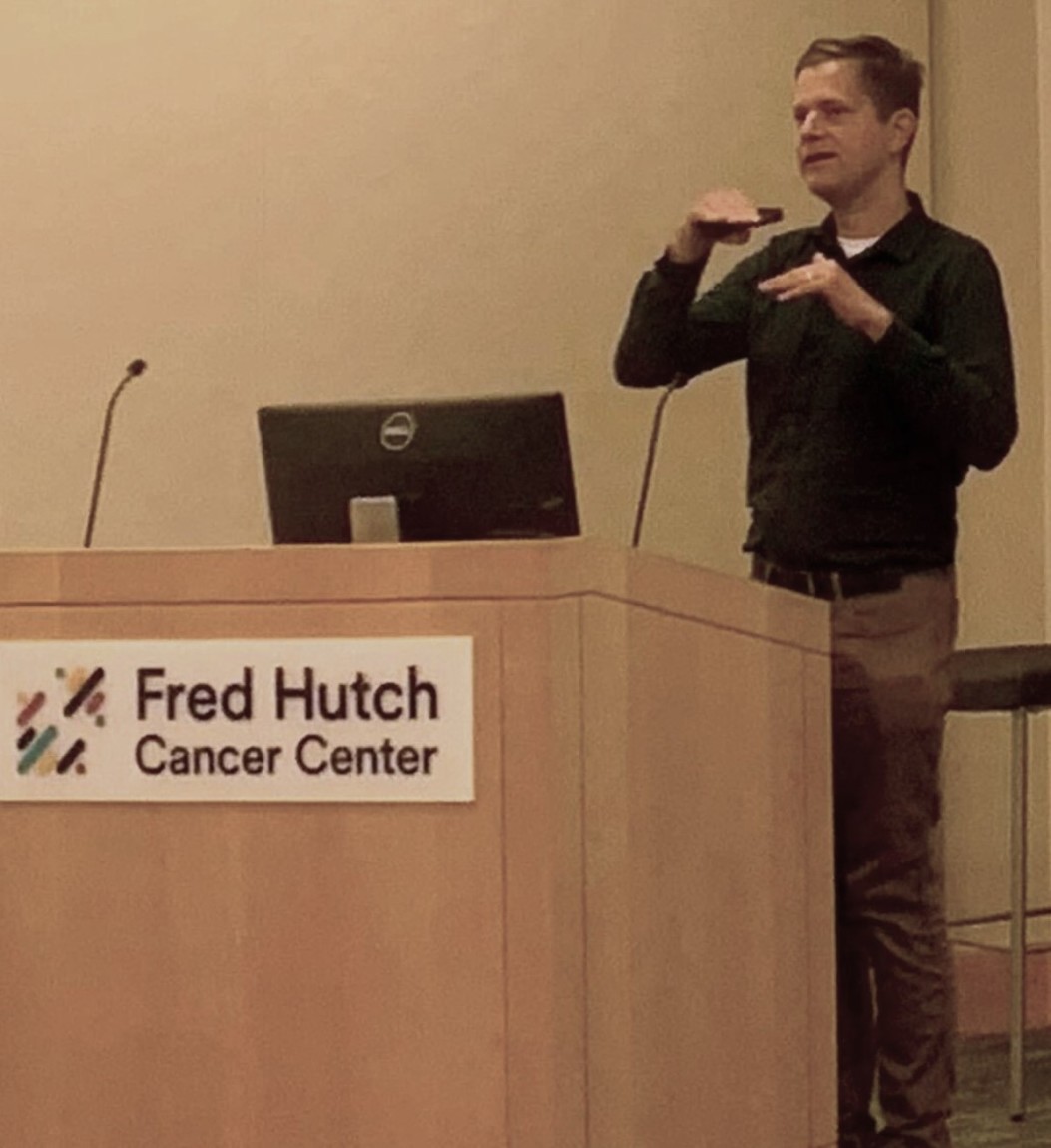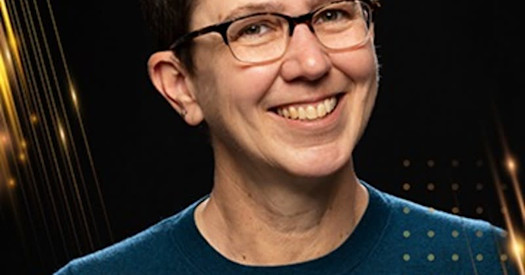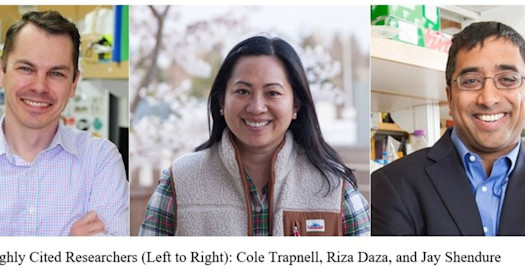 BBI's Dr. Danny Miller delivers opening remarks at the long-read sequencng symposium
BBI's Dr. Danny Miller delivers opening remarks at the long-read sequencng symposium
Dr. Danny Miller, the scientific advisor to BBI’s Long Read Sequencing Symposium on November 15, had three overarching goals for the half-day symposium: 1) bring together Seattle-area users of long-read sequencing to learn from each other; (2) build new collaborations; and (3) to explore potential synergies among users.
Miller and at least one other presenter believe the all three goals were met and that many, if not all, of the 80-plus participants gained new observations and insights into long-read sequencing.
“I was thrilled with the turnout, diversity of topics covered, and participation from the audience, said Miller, who served as the MC for the event. “I learned something from every talk and was happy to make some great connections with folks I may not have run into otherwise. So, overall, I think we met our goals!”
“I really enjoyed hearing about topics I don’t think about every day such as viral genome sequencing, as well as emerging uses of long-read approaches, such as with protein sequencing. While they don’t have direct overlap with what we do in the lab every day I know who I can point people to who are interested in these topics or who I can talk to when a question arises. “
Dr. Paul Valdmanis, an associate professor in the UW Medicine Division of Medical Genetics, called the symposium “inspirational.”
 BBI's Dr. Paul Valdmanis addresses symposium participants
BBI's Dr. Paul Valdmanis addresses symposium participants
“I was able to forge new collaborations and learned which colleagues are incorporating long-read sequencing into their everyday research,” said Valdmanis, who presented on “Massive Expansion of a Denisovan Introgressed Variable Number Tandem Repeat in Ancient Americans.”
“I learned a considerable amount about the many tools and resources that are available to analyze long-read sequencing data,” he said. “It was great to hear about updates to some of the sequencing protocols that are available and how folks in the Seattle area are utilizing LRS in to aid in clinical diagnoses.”
The symposium was sponsored by Oxford Nanopore. Discussions have begun within BBI to consider another long-read sequencing event in 2024. Watch for developments on the BBI website.


